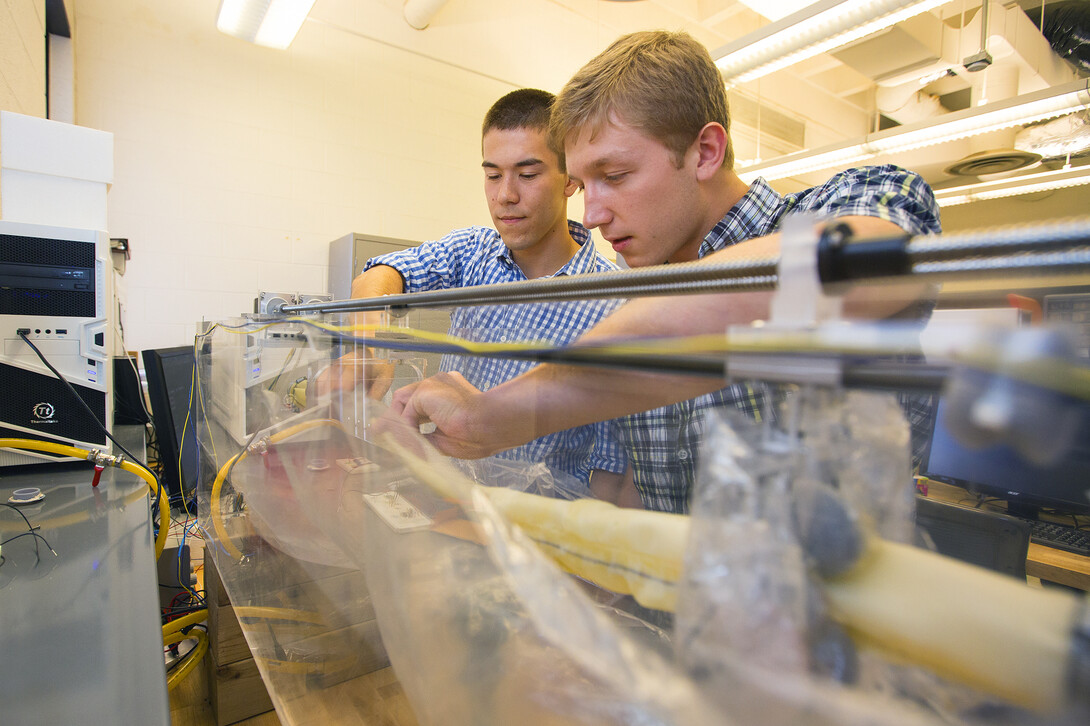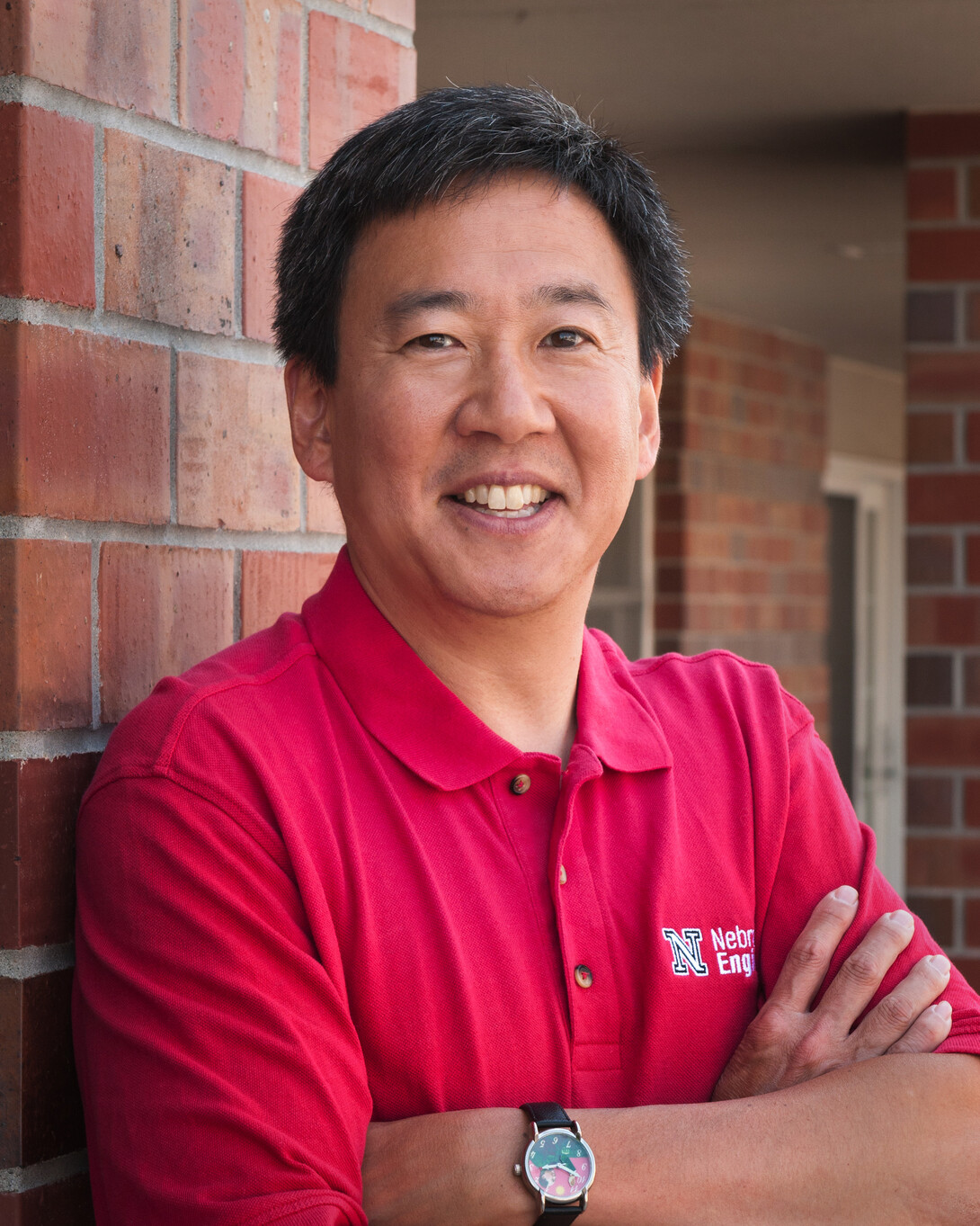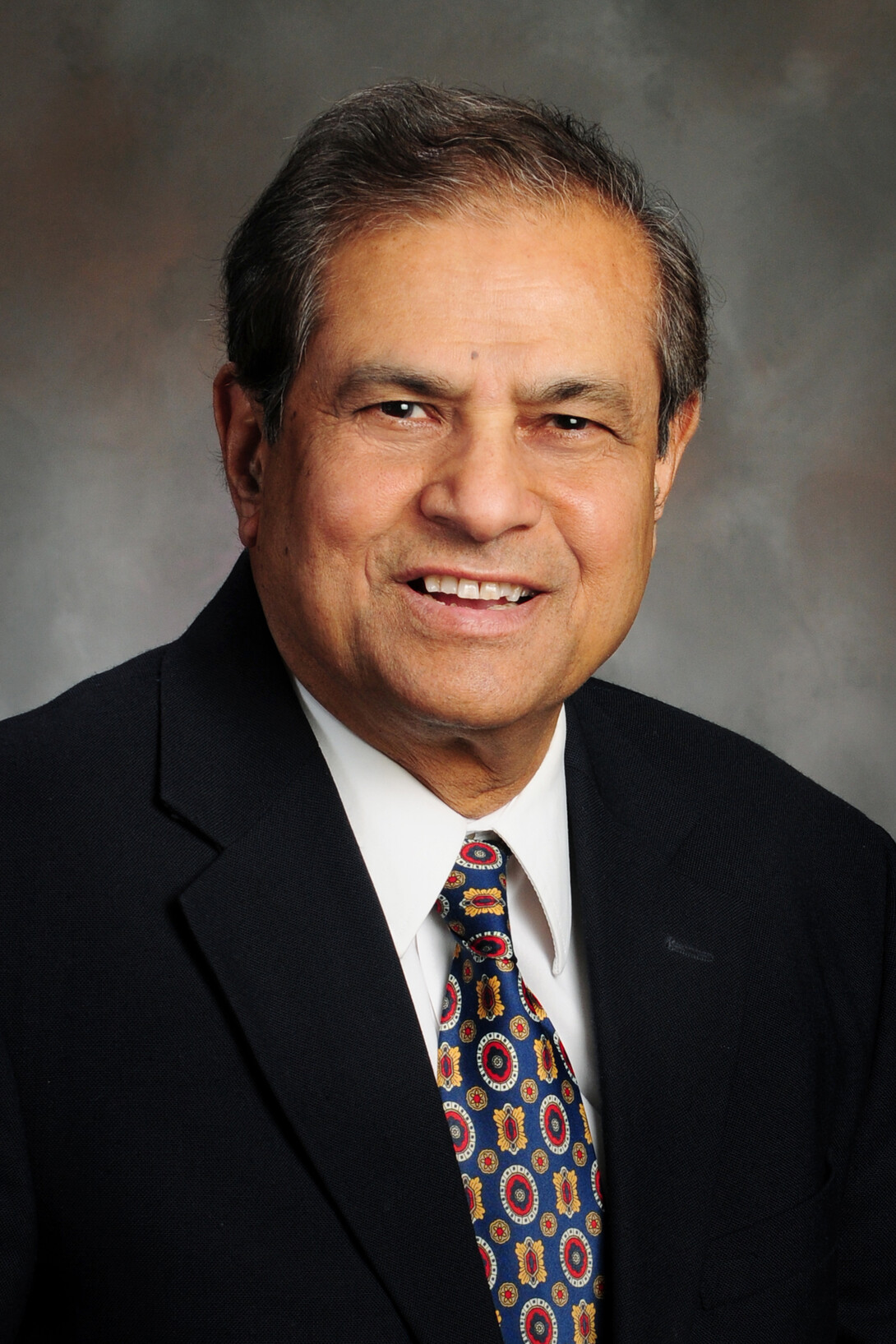
UNL is a partner in a $320 million advanced manufacturing collaboration that President Barack Obama announced Feb. 25 at the White House.
Through the new Digital Lab for Manufacturing, UNL researchers will have opportunities to work with colleagues at 22 other universities as well as with industry, government, state and community partners in Nebraska and 16 other states. The digital lab is funded by $70 million from the Department of Defense and $250 million in commitments from its partners to form the $320 million innovation hub. It was one of two major innovation hubs announced Feb. 25 as part of Pres. Obama’s investment in U.S. manufacturing.
Led by UI Labs, a University of Illinois-affiliated research and commercialization collaborative, the digital lab will be headquartered in Chicago and linked to a network of manufacturing research sites nationwide. It “will be the nation’s flagship research institute in digital manufacturing and design innovation” and a first-of-its kind manufacturing hub, according to a lab fact sheet. The aim is to harness the nation’s best research and technology to reduce manufacturing time and costs, strengthen the U.S. supply chain and reduce acquisition costs for DoD.
“We’re proud of our partnership in this world-class digital manufacturing consortium, which promises to transform American manufacturing,” said Chancellor Harvey Perlman. “Our faculty’s involvement in this national innovation hub is the latest tangible evidence of the benefits of our Big Ten membership.”
UNL worked with organizers on plans for the new lab. As a university partner, UNL faculty will be able to compete for funding through the lab; team with Nebraska manufacturers or other industry partners to propose research projects; and work closely with colleagues and major industry partners from around the country.
“This is great news for Nebraska,” said Timothy Wei, dean of engineering. “It puts us on a national stage in an area of immense importance.”
Initially, more than a dozen UNL engineering faculty may be involved with the consortium but other faculty could also participate. Wei said he expects the number to grow. Manufacturing is a major component of the College of Engineering’s strategic plan, which calls for hiring 100 faculty in the next five years.
“Our level of success depends on how well we compete and collaborate within this consortium,” he said. “With our growth initiative in Omaha and Lincoln tied to industries across the state, this kind of opportunity helps us attract top-flight faculty and strengthen our research and education programs.”
UNL’s strengths in areas such as materials and nanoscience, advanced manufacturing processes and systems, and computer engineering and telecommunications fit well with the lab’s goal of improving the overall competitiveness of U.S. manufacturing, said Kamlakar Rajurkar, distinguished professor in mechanical and materials engineering, who leads UNL’s collaboration with the lab.
With development of Nebraska Innovation Campus, UNL is already working to foster business partnerships that eventually will translate into new jobs and economic growth for Nebraska, Rajurkar said.
Nebraska manufacturers will be able to “directly apply this innovative R&D to reduce costs and production time and, eventually, to get their workforce trained,” Rajurkar said.
UNL students also will directly benefit, Wei said. The digital lab collaboration focuses on large problems across disciplines, which he said is a great model for teaching students how to tackle complex issues. University and government partners are regionally anchored in the Midwest, spanning Illinois, Indiana, Iowa, Wisconsin, Kentucky, Michigan, Minnesota, Missouri, Nebraska and Colorado. Others include New York, Oregon and Texas. The lab includes 40 industry partners, more than 500 supporting companies and organizations as well as government, and community partners. Leading industry partners include General Electric, Rolls-Royce, Procter & Gamble, Dow, Lockheed Martin and Siemens.
“Partnering with industry is essential for transforming our research into manufacturing advances that create jobs and enhance Nebraska’s economy,” said Prem S. Paul, vice chancellor for research and economic development.









